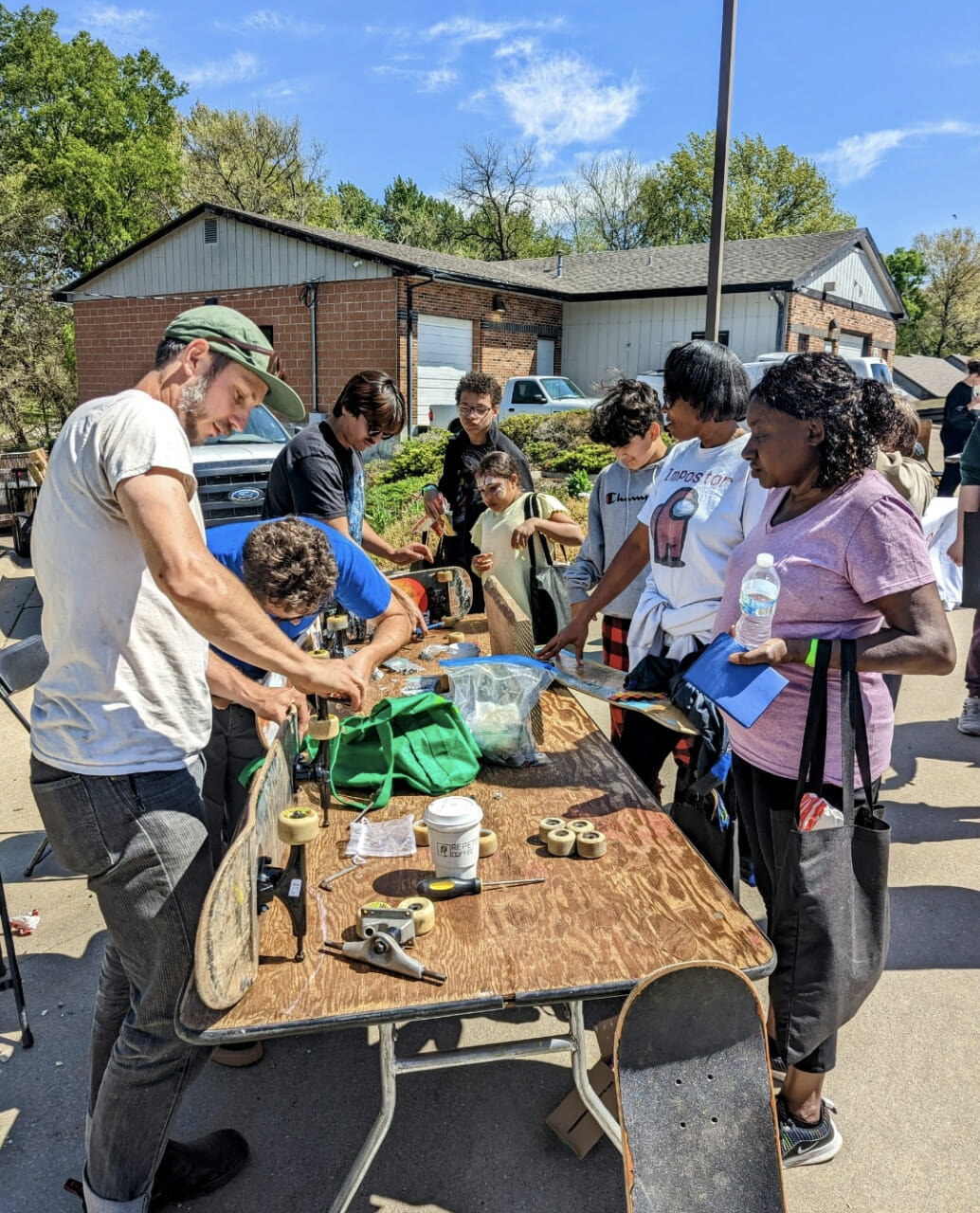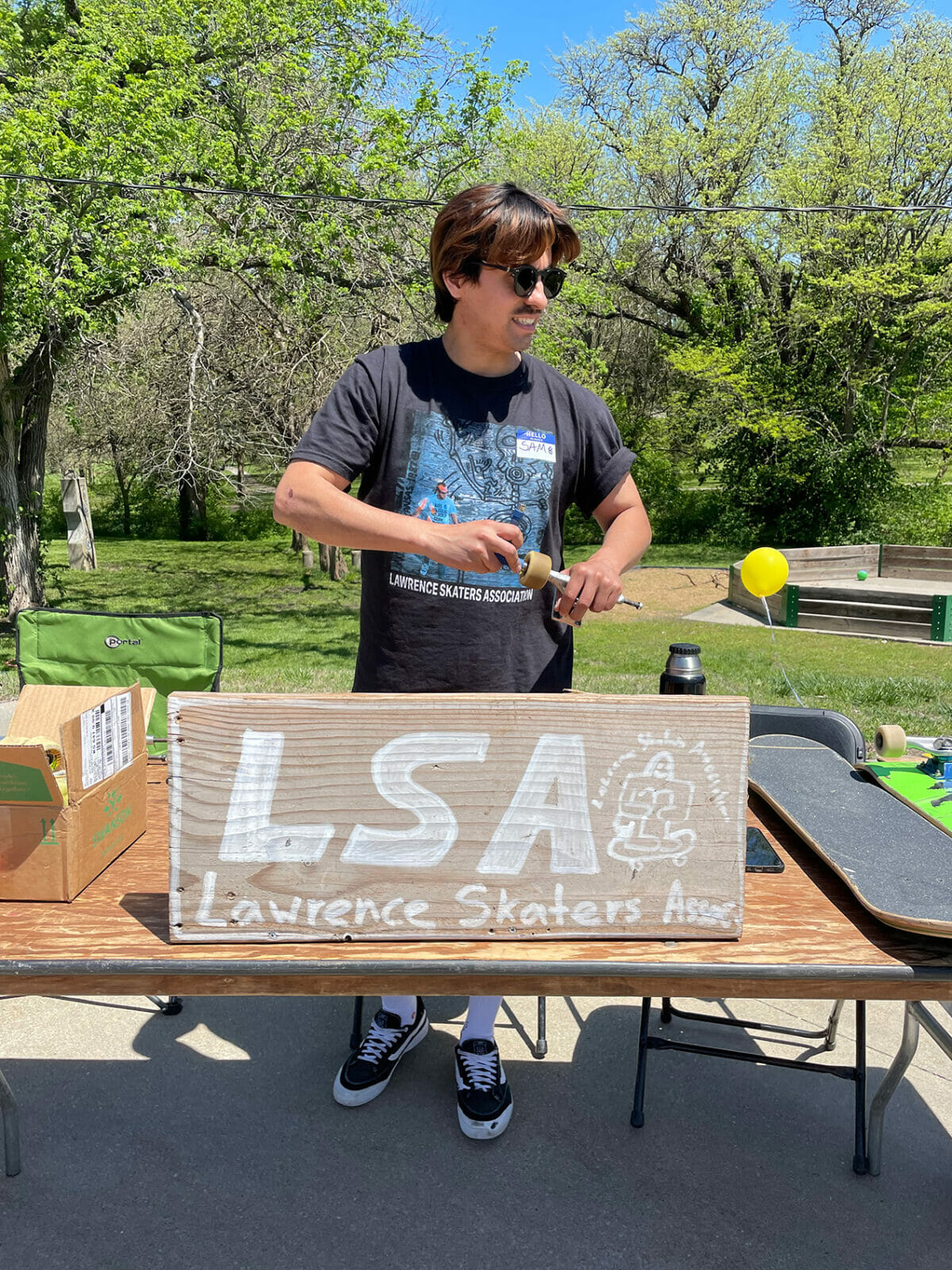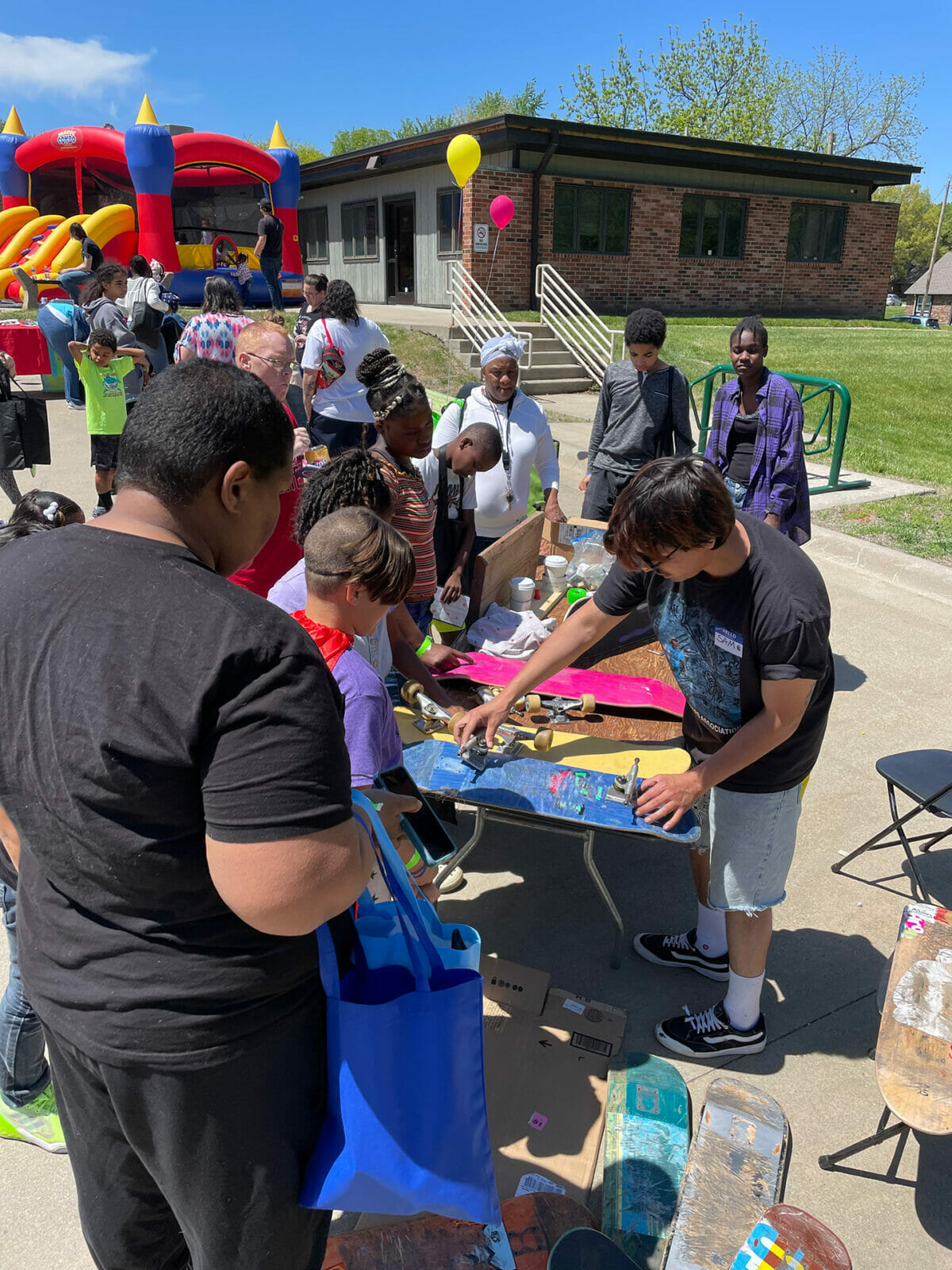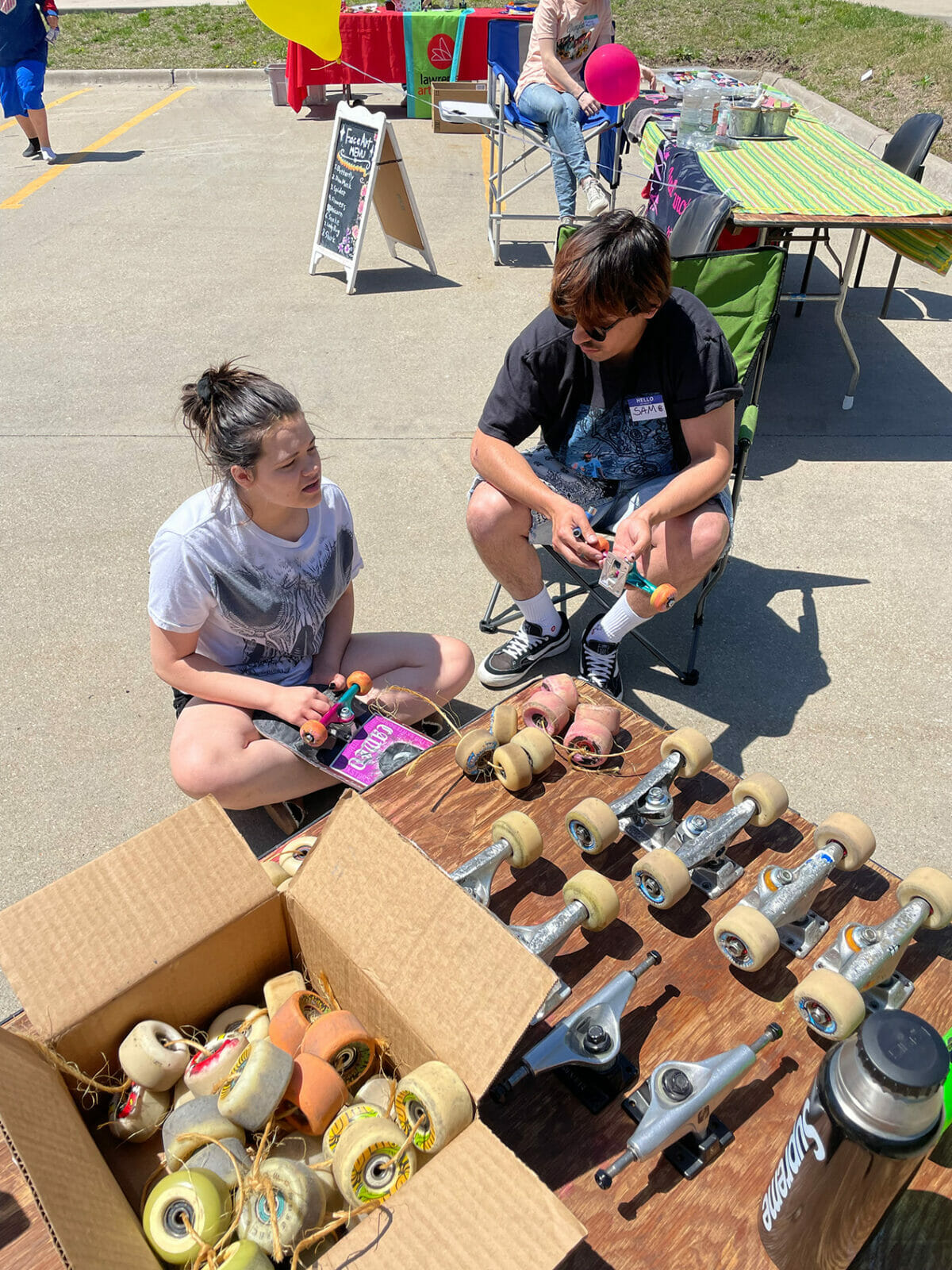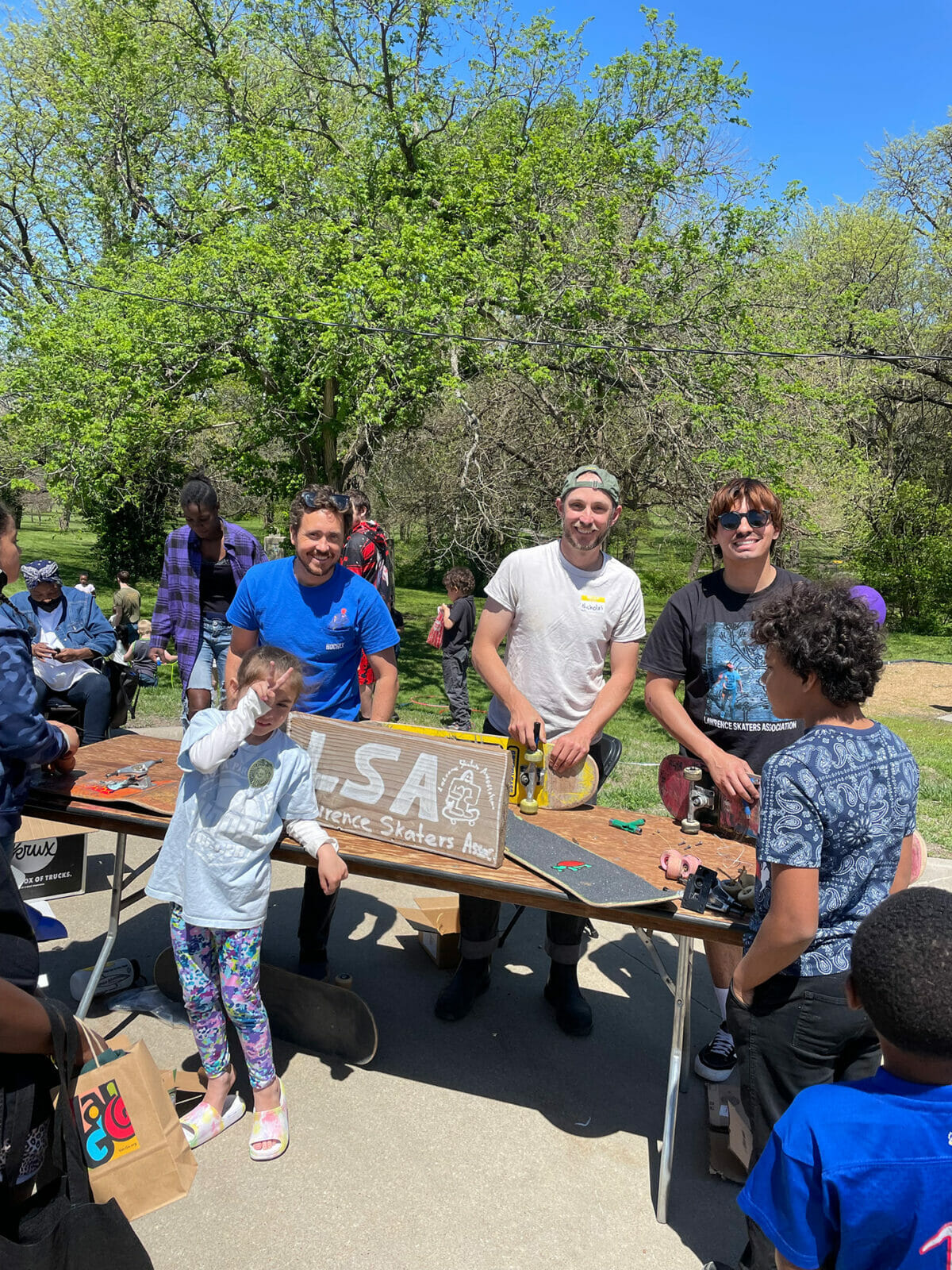Building Up Low-Income Youth in Lawrence with Skateboards It Began with Plans for More Ramps, But Became Something More
Published May 26th, 2023 at 6:00 AM
Above image credit: In Lawrence, Kansas local community and skate leaders compiled their gently used extra parts to give kids who live in low-income housing a chance at skate culture. (Contributed)It was a sticky spring day in Lawrence.
Bounce houses bobbed and families gathered for a yearly community event called Edge Fest for residents of public housing and Section 8 units. A group of kids — ranging from 6 to 15 years old — bee-lined to the Lawrence Skaters Association’s (LSA) large wooden table.
One by one, kids picked from supplies — decks, wheels, trucks and grip tape – splayed out on a table. All for free.
“The thing that sucks about skateboarding (is the) financial barrier to entry,” said Sam Thomas, an LSA member and leader.
During the event, Thomas helped the young skaters build and decorate their own custom skateboards. Thomas, who is also a coffee roaster at Repetition and a community advocate, said the idea was simple. Skateboarding may be free to ride, but not to build.
He pointed to Nicholas Ward, a project leader at Edgewood Community Skatepark and assistant director of the nonprofit Tenant to Homeowner. Because of Ward’s work in building networks for folks in affordable housing complexes around the city, he also became aware of what could better support the youth living there.
Before the build-a-board program, they’ve been busy working with the city to build skate parks around the county. The goal was to build partnerships with entities such as Parks and Recreation and find ways to create safe spaces — and more parks — for skaters.
“For a long time, skateboarding existed in a way that skate parks were hidden under bridges or tucked away,” Ward said. “It is a subculture but it’s not a subculture any more than people who played the violin or into a certain type of music.”
“Our effort has been to kind of switch up the model for how a boarding has been locally and to make sure that we are communicating with our city leaders that we are family friendly.”
Ward and other members of the Lawrence Skaters Association came up with another idea: they’d collect gently used materials that still had some mileage left and make them available to these kids. A skateboard can cost $150 — on the low end.
Many times, families with limited resources opt for boards at big box stores like Walmart. Although buying at Walmart may be cost effective, the quality of the materials affects the quality of the ride.
“It’d be kind of like trying to play like soccer in Birkenstocks … You’re not going to have a good time,” Thomas added.
Following Ward’s lead, they tapped River Rat and other local organizations that could help donate supplies to have enough for 20 free skateboards.
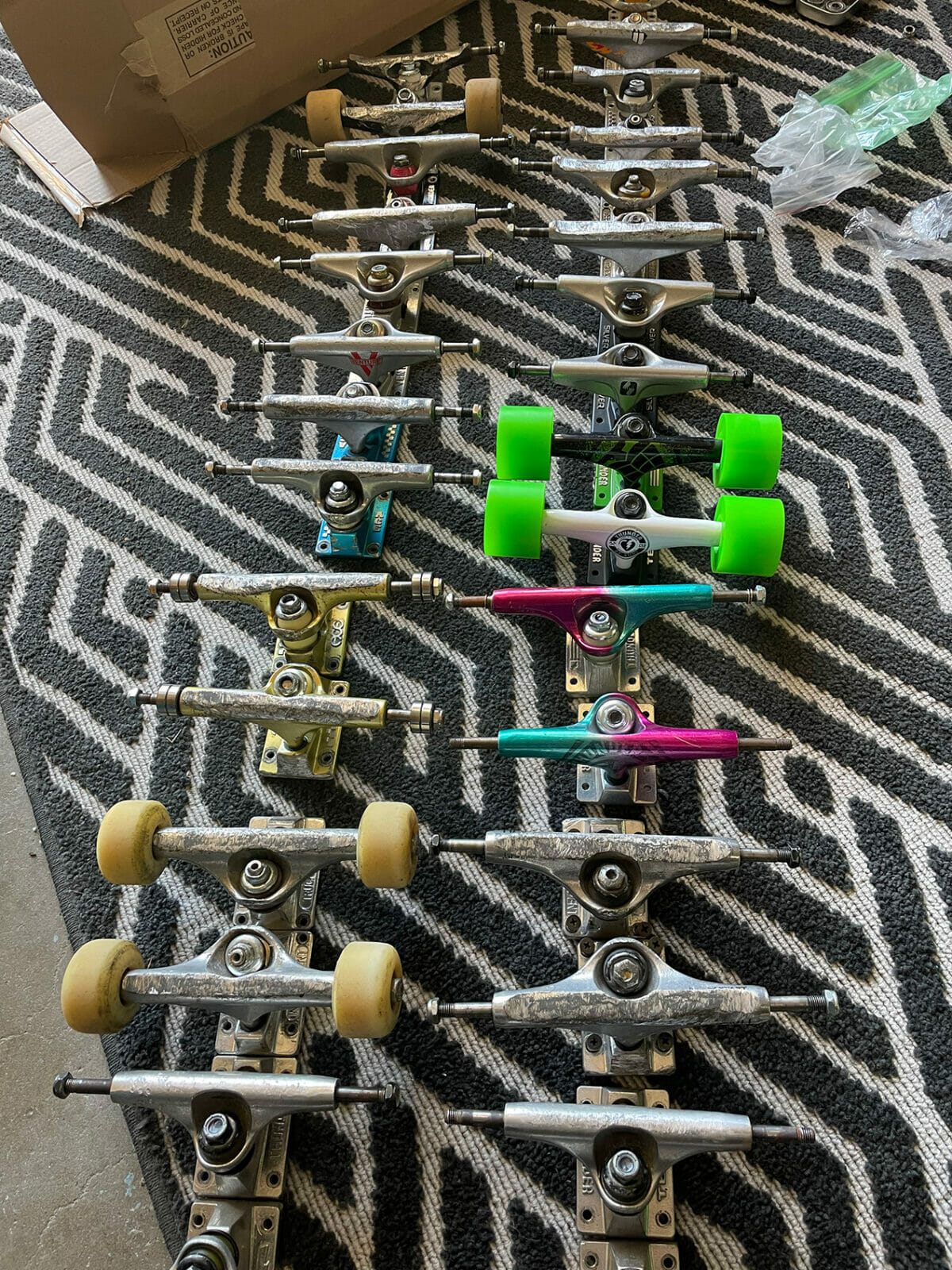
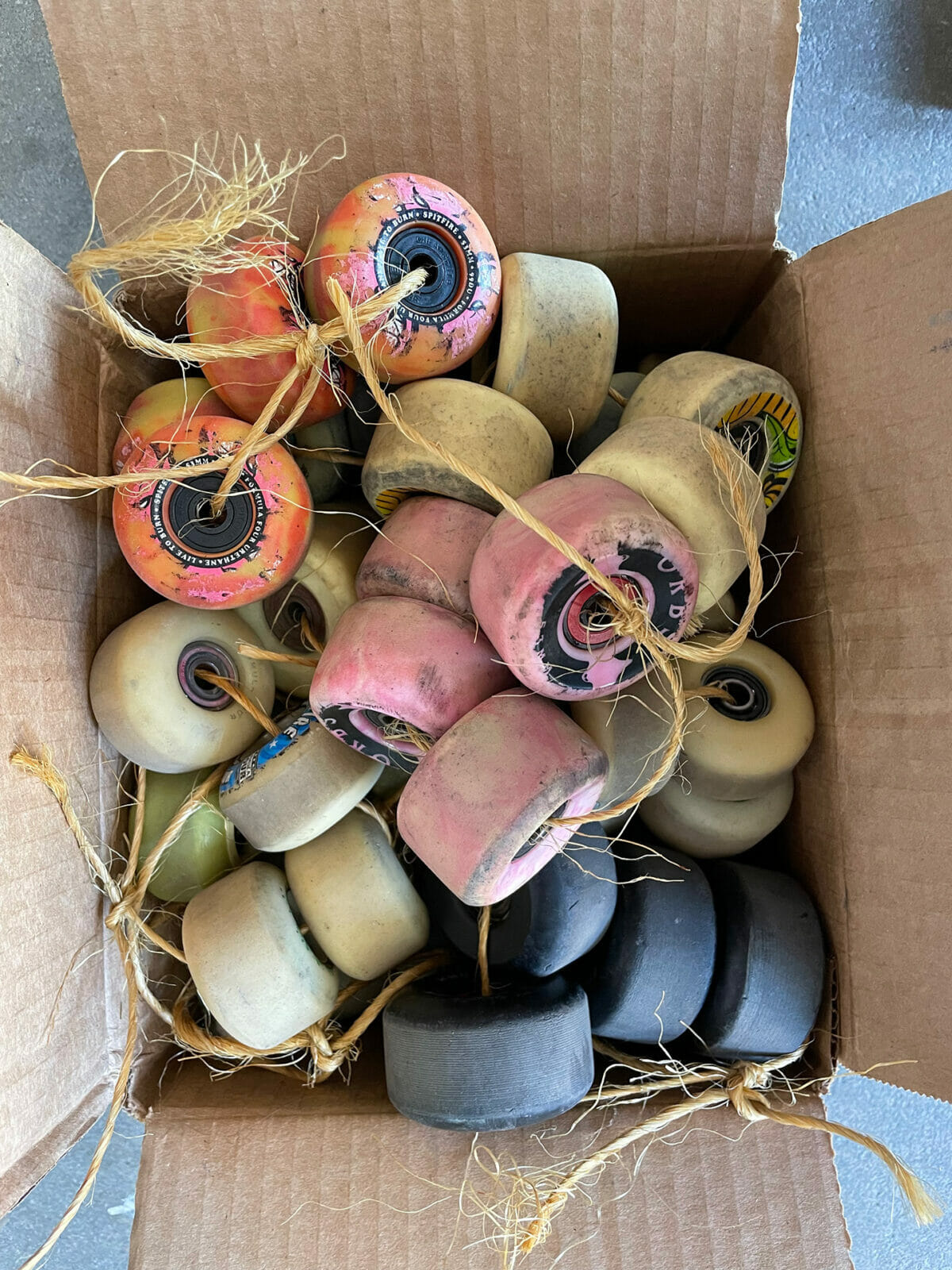
“I just saw that this was a way for them to really get included and wrapped into the kind of the culture and community of skateboarding,” Ward said.
It was successful. At one point, supplies ran out and they stepped away to rummage for more. At the end of the day, they served roughly 20 kids with others asking for more.
Edgewood Homes is at 1600 Haskell Ave., one of the Section 8 properties operated by the Lawrence-Douglas County Housing Authority.
Over the years, city leaders have sought to bring resources to families living there to improve their quality of life and build better opportunities. This year was the first community event since the COVID pandemic hit.
The importance of building networks is not lost on Mel Hallenbeck, Full Circle Youth Program Coordinator with the Lawrence-Douglas County Housing Authority. Her background is in social work and mental health spanning over 20 years.
Small efforts like giving free supplies to kids make a larger difference than meets the eye.
“Our tenants and their families just want to be seen and heard,” she said. “They want to know that they have value, that other people value them, that they have many things to offer the world.”
The networks LSA and the housing authority have built are informed by trauma-informed care. The two pillars are building strong relationships and building safety.
Hallenbeck serves families and children who rely on government assistance. Roughly 90% of youth in that community receive free or reduced lunch. So, there isn’t much wiggle room in family budgets for extracurricular activities.
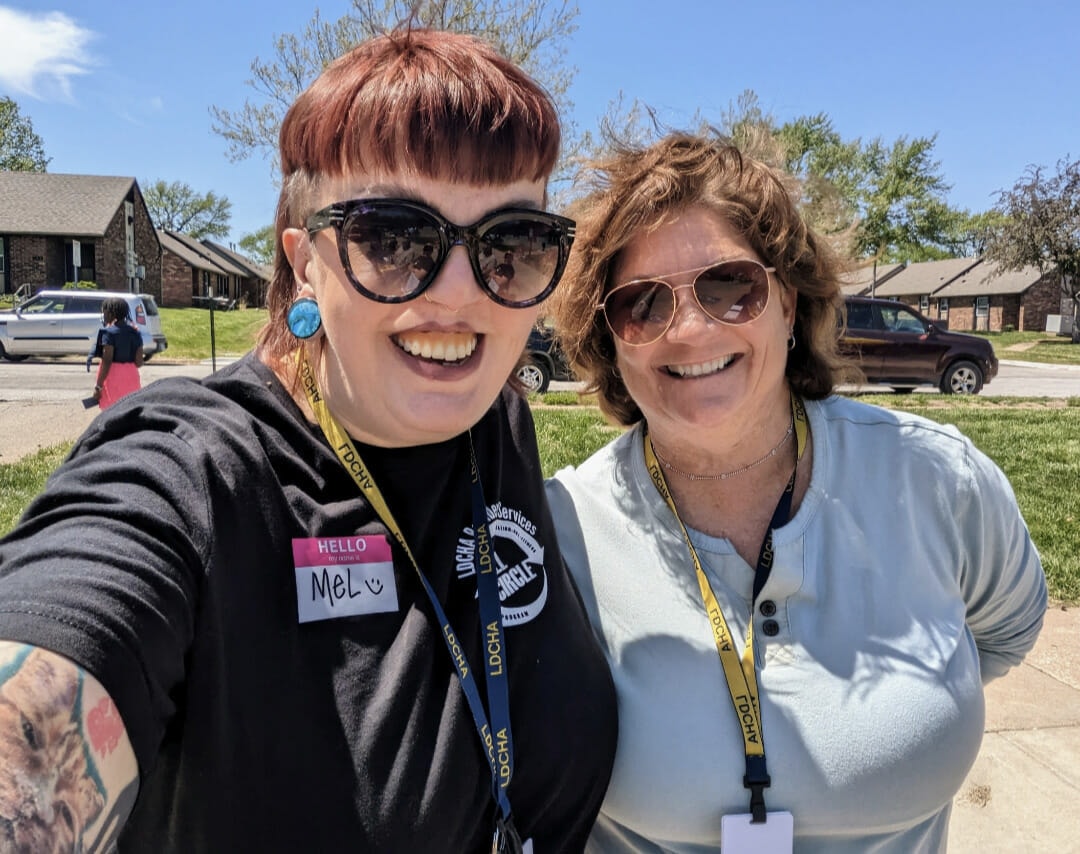
But the needs are great. Children who have experienced insecurity or trauma should have access to therapeutic activities. Studies show the benefits of interactive play and, specifically, how skateboarding builds confidence, reduces stress and helps teach children etiquette.
“Mental health … foundationally affects every other branch of your life,” Hallenbeck said. “If you’re not eating, that literally impacts everything else.”
More specifically, “Beyond the Board,” a study out of the University of Southern California and funded by the Tony Hawk Foundation, found mental health benefits and evidence that the subculture sparks empathy. Researchers created targeted surveys online and via mail for 13- to 25-year-olds. They received 5,000 responses and interviewed community leaders in several states.
The results were clear. When researchers asked why people skate, more than 60% said to relieve stress. An excerpt of findings expounds on the links to mental health and finding belonging:
“Survey and case study data illustrated multiple ways skaters look out for each other and find a community within skateboarding circles,” according to the study. “This finding connects to mental health – when young people feel disenfranchised, skateboarding and skateparks provide a shared space to connect with others. Skaters appear to want to be helpful and uplift their fellow skaters.”
It also proved important among skaters of color or those from minoritized communities. One respondent, a 14-year-old Latinx skater, said: “If you want to learn, you need to commit. If you’re going to commit, you’re going to fall sometimes, but you’ve got to get back up and try again.”
Although this study is among the first of its kind, it has prompted discussion among community leaders, social workers and mental health professionals around the nation.
Locally, people like Thomas, Ward and Hallenbeck are putting these tools to use.
They see it as a larger part of a network to support folks where they are, whether that’s food deserts, education and literacy or social/emotional well-being.
“Here’s a way that like, the kids are getting active, and they’re getting to do something that puts them with a community. It teaches them discipline and … a lot of life skills,” Thomas said.
“That’s a really important thing about it is because once you get over the financial barrier, then you get to reap all the benefits.”
To donate supplies or support Lawrence organizations, follow the links below:
- Lawrence Skaters Association
- Just Food – provides quality groceries for people who are food insecure
- Lawrence-Douglas County Housing Authority
- Lawrence Parks and Recreation



